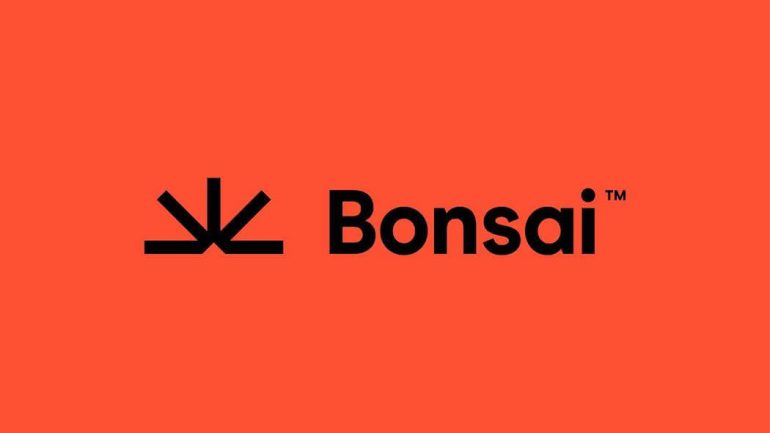Embedded commerce startup Bonsai has laid off 29 employees (about 34 percent of its team) less than a month after securing $21 million in Series A capital.
The move was a proactive one, according to Bonsai founder and CEO Saad Siddiqui, who told BetaKit the layoffs are part of a restructuring to allocate more capital towards growth. The staff cuts eliminated certain product and engineering teams in order to focus on customer acquisition, the CEO said.
Less than a month after announcing its Series A round, Bonsai laid off 29 people from its 84-person team.
Calling what Bonsai is doing a new category in the media digital commerce space, Siddiqui noted, “part of what we were doing when we did the restructuring is saying [that] we want to make sure we have enough time and enough resources to be able to iterate on the product and the growth of the business, so we can properly capture that category.”
Siddiqui called the layoffs a change in Bonsai’s operating philosophy rather than a response to a cooling in the venture market, or the recent struggles faced by customers like BuzzFeed.
“We spent a lot of [the last] few years building our product out,” Siddiqui said. “Now we’re kind of out of build mode and now into more hyper-growth mode. So that’s really what the change in resource allocation and restructuring relates to.”
Bonsai works with high-profile media publishers to facilitate sales through an embedded commerce tool that includes discovery and checkout. Since launching its embedded commerce solution in January 2021, Bonsai has amassed a list of customers that includes media conglomerates like BuzzFeed, Vox Media, PureWow, Refinery29, and Well+Good. With that growth, the Toronto-based startup was able to secure $21 million CAD in Series A financing in March.
Less than a month after announcing that round, Bonsai laid off 29 people from its 84-person team, on April 21. The cuts were made across the company, and included full-time and contract workers.
Siddiqui told BetaKit that Bonsai had not planned to reduce its staff at the time it secured Series A capital, but a re-assessment of some product features, and a desire to focus on customer acquisition, led the company’s management team to eliminate some teams.
Siddiqui told BetaKit that the cuts were related to internal features, like automating quality assurance and data pipelines, and emphasized that Bonsai remains focused on creating white-labelled embedded commerce platforms for publishers.
While the changes for Bonsai are product feature-related, cuts were made across all the company’s departments with Siddiqui explaining that operational staff that were associated with features that Bonsai is no longer working on were cut, in addition to product and engineering staff.
The CEO rejected the idea that Bonsai’s layoffs were in any way related to the recent struggles faced by one of its biggest customers: BuzzFeed. The media company made its own layoffs last month, getting rid of a large swath of coverage areas that represented roughly 100 journalists. These cuts significantly impact BuzzFeed’s style and amount of coverage, but Siddiqui said, if anything, Bonsai’s solution is more attractive than ever to struggling media companies.
“Bonsai is what’s been helping drive new growth in those companies,” said Siddiqui. “If anything, our customers are more bullish about using our tool or investing more of the resources that they have left into our solution.”
“We actually have not been adversely affected by changes to their businesses,” he said. “In fact, if anything, it’s helped us as they start to refocus on new revenue streams.”
The CEO claimed Bonsai’s now 55-person team is focused on growing its customer base.
When the startup raised its Series A in March, Siddiqui shared that Bonsai expected to reach 75 publisher customers by the end of this year, and planned to double its employee base. Following the layoffs, he argued that Bonsai still expects to do both. He anticipates that Bonsai may look to hire employees within the year if it stays on its current customer growth trajectory. He indicated that the way Bonsai was previously staffed meant it did not have the resources to handle incoming customer demand, and future hires would be focused around that area.
“Because we intend to grow our customer base … we need more of those resources in the growth areas as opposed to the building areas,” said Siddiqui. “We’ve already got a product that is well received and accepted by customers – obviously, we have to keep iterating and making it better – but today, the resources have to be deployed more towards growth as opposed to scaling infrastructure.”
While Siddiqui called Bonsai’s layoffs a proactive move to ensure the startup is able to focus on customer acquisition, market conditions have led a handful of other Canadian startups to make recent layoffs. Proposify, Thinkific, and Legible — the latter two being public companies — have made staff cuts this year in relation to not hitting anticipated growth targets and adjusting to negative public market conditions.
Siddiqui remained positive about Bonsai’s outlook, and highlighted the opportunities he still sees for the company. “E-commerce at the point of inspiration or discovery is not really a well-defined market segment yet. But there’s a ton of payment volume that’s attributable to that point of the purchase funnel,” he claimed.
Image source Bonsai via Facebook.


